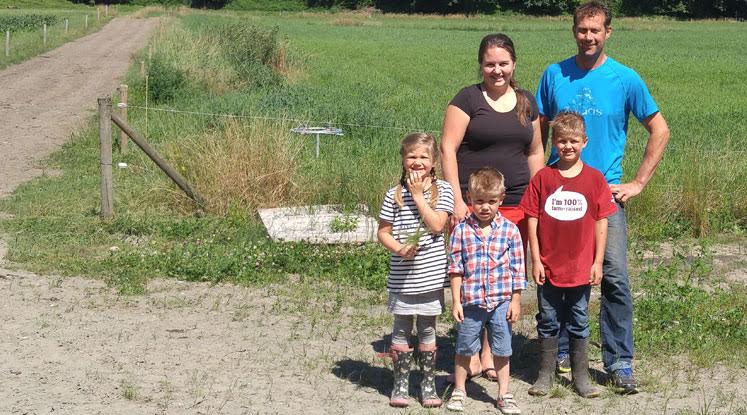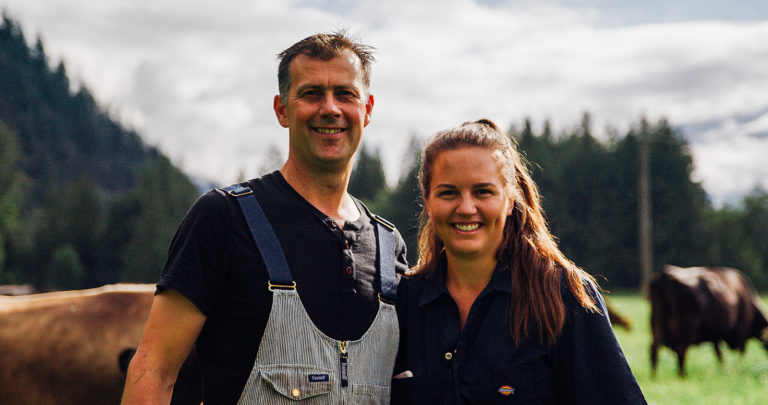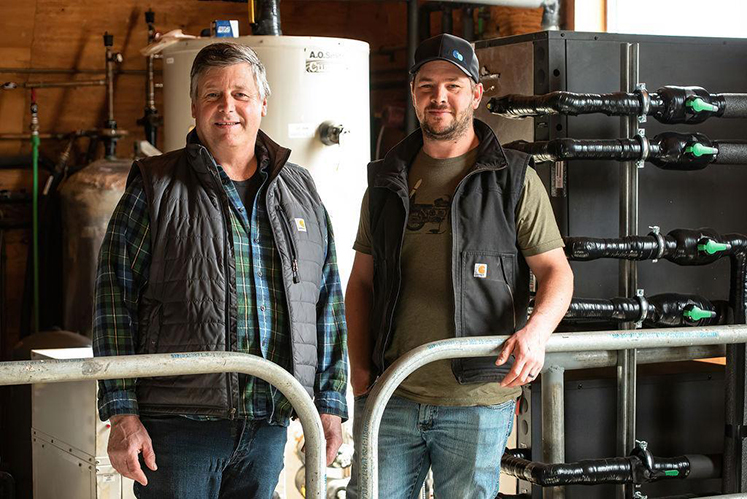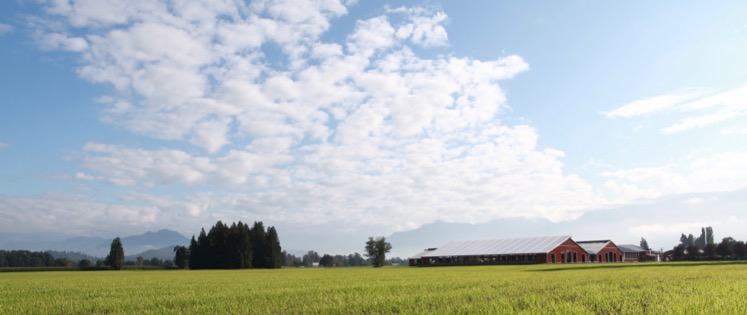Meet the Treurs- an organic dairy farming family living in the Fraser Valley. Learn about their journey into organic dairy farming.
Johannes and Julaine Treur own and operate Creekside Dairy: a charming little dairy farm in the Eastern Fraser Valley of British Columbia. The Treurs milk around 90 cows and recently made the switch from conventional dairy farming to organic. I had the pleasure of visiting this beautiful farm to chat with the country couple about their new life as organic farmers.
It all started about four summers ago when the Treurs spread chemical fertilizer on their fields for the last time. Enticed by additional quota sleeve (dependent on the previous month’s production), and the added premium that goes along with being an organic dairy farm in BC, they began looking into what it would take to become fully certified.
Organic certification in the BC dairy industry requires crops to be grown on land that has been free of synthetic and chemical product for a minimum of three years, and for cows to be eating an organic diet for at least one year. Having already started tending to their land without the use of chemical fertilizers, pesticides, and herbicides for several months, Johannes and Julaine were well on their way. The next step was to begin feeding their animals an organic diet.
Organic feeding requirements for dairy cows in BC
In order to be certified organic, dairy cows must consume a diet of at least 60 per cent forage, like grass, hay, or silage, which the Treurs grow themselves. Half of this forage diet must be grass, meaning the cows are out to pasture when the weather permits. From early spring to late autumn, the cows at Creekside Dairy enjoy lush grass during the day and come inside at night.
Before making the switch to organic farming, their cows already had access to pasture during the day so they could get some exercise. Located at the foot of a majestic mountain-scape, it is no surprise they wanted to share this view with their herd! Having an existing grass-fed diet for their cows made for a seamless transition into this requirement for organic certification. The remaining 40 per cent of the organic diet is made up of grain that they purchase from an organic feed mill.
While letting the cows out to pasture was nothing new for the Treurs, adjusting to organic grain wasn’t quite so simple. While the grain that is purchased from the organic mill is of high quality, there are fewer options available, and it typically costs twice as much as conventional grain.
Dealing with weeds and pests under organic certification
In addition to switching to organic grain, another important difference that Johannes and Julaine have experienced is controlling weeds in their corn fields. Without the use of chemical herbicides, battling weeds can be a challenge if you plant too early. If the weather is not quite warm enough, the crops have difficulty competing with weeds that can grow in cooler conditions. If you plant when it’s warmer however, the crops have a better chance of outgrowing weeds. Careful tilling practices also help keep weeds under control, Johannes explained. Similarly, some pests can also be dealt with by planting earlier when crops are more resilient.
Soil Management
In the absence of chemical fertilizers, the Treurs are seeing enhanced soil life, which fixes nitrogen in the soil so you don’t need to continue adding more manure. “That’s really the organic mantra,” Julaine explained. “You’re growing a good soil that will grow good crops.”
One of their fears going into this process was that they would suffer reductions in their crop yields in the absence of regular manure application. To their surprise, however, Johannes and Julaine found this to be quite the opposite. As conventional farmers, they found their grass would turn yellow if they didn’t spread manure on it. Now, they’re beginning to notice that even in the absence of manure spreading, their grass is coming back nice and green, and they’ve seen no decrease in crop yields.
“Feeding the soil rather than feeding the plant; I’m starting to believe that.” –Johannes Treur
‘Organic milk is typically more expensive than conventional milk’- Is this true?
Yes- Organic milk costs more to produce due to the extra costs of grain and the reduction of milk yields. Organic milk costs more in stores to account for the increase in overall production, transportation, processing, and retail costs.
Want to learn more about organic milk? Read our article: What is the difference between regular milk and organic milk.



